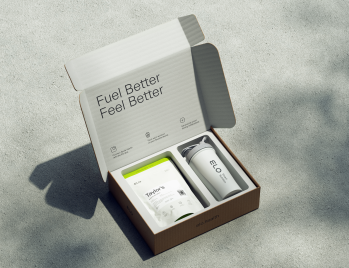🇺🇸 🍄 Meti Foods, a US-based startup producing meat alternatives with mycelium, raised a new round of $22M. It also announced the opening of a large facility that will be able to produce tens of millions of pounds.
🇦🇺 🐮 Rumin8, an Australian startup, raised $12M for cow supplements that reduce the amounts of methane the animals emit. The funding will be used for commercial trials and kick-off manufacturing.
A year ago, very few funded startups were actively pursuing the idea of reducing cows’ methane rather than replacing meat with alternatives. They are now many companies attracting investments, working on different types of supplements (notably algae) and even vaccines. We look at this as communicating vessels: meat alternatives have had a disappointing year, so climate-focused investors are looking for other solutions.
🇬🇧 🍻 Dash, a UK-based, better-for-you seltzer brand, raised £8.7M. With no sugar and zero calories, it is one of the many brands that try to reinvent soft drinks.
🇺🇸 🤖 SJW Robotics, a US startup, raised $2M for its cooking robots. Like many of the newer startups in this space, it will not create a B2C brand but rather focus on robotics to let partners develop the right menus and marketing.
🇳🇱 🇫🇷 🤝 Formitable (Netherlands) and Zenchef (France), two software startups developing foodservice solutions to help owners manage their restaurants, are joining forces. Zenchef had raised €50M from a private equity (now the majority shareholder) firm last September. Does it mean that additional deals are to be expected in order to build a European leader?
🇺🇸 🍽️ Elo, a US startup, raised $10M for what it calls “smart protein”, a whey protein which is personalized in its composition depending on your goals. Using the wearables trackers, it also follows your workouts to tell you when and how much protein you should take. After years of stagnation, we are quite excited by the number of new personalized foods that are emerging.

🇺🇸 🍅 Nourish, a US startup raised $10M for its solution that helps consumers to be connected to registered dieticians and to have the cost of the consultations covered by their health insurance.
🇳🇱 💥 Future Crops, a Netherlands-based indoor farming startup, went bankrupt. It had raised $30M, but the rising energy costs seem to have caused the bankruptcy. Actual rising costs (and the idea that cheap energy is not a given anymore) make the life of indoor farming startups much more complicated.







